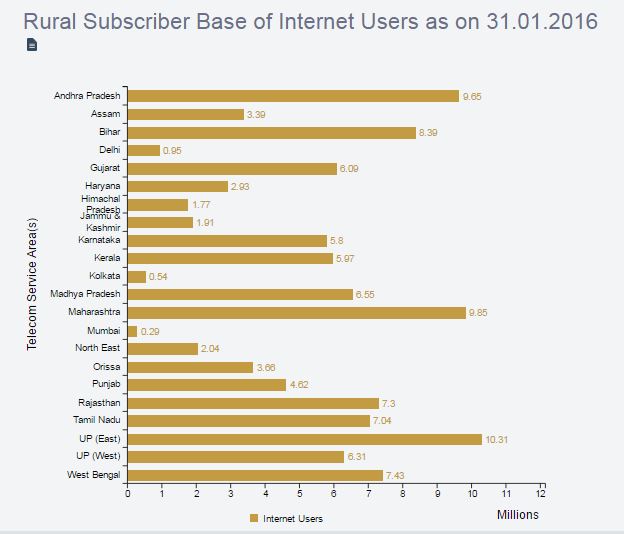While Facebook founder and CEO Mark Zuckerberg in a post highlighted the dangers of fake news, there is a problem in tracing fake news through WhatsApp because of its reach in India
Last Sunday, my mother received a WhatsApp forward of a picture of a Milky Bar chocolate wrapper. The ingredients said that it contained pork gelatin. We cross-checked the ingredients with a Milky Bar at the local grocery store and found that it contained vegetable oils. My colleagues and I did a reverse image search on Google and sourced the image to an Islamic Forum in the United Kingdom in 2012.

(Left) The image from the forum in UK and (right) the manufactured Milky Bar in India
Last month, a forward was doing the rounds on how the Shivaji memorial was a masterstroke by the BJP government because “The statue is made of Amorphous Silicon, Cadmium Telluride & Copper Indium Gallium Selenide. This is exactly the same material used to make solar cells. Our government consulted with Dr. Immonen Kirsi, Senior Solar Scientist at VTT Research, Finland to develop technology to mould these materials into a statue form. This research took 2.5 years & on December 3rd, Dr Kirsi sent an email to Modi Sir that it is now ready for mainstream use. The statue has capability to generate enough electricity to power all government offices in Mumbai.
“The statue also has Radial Uniform Projection And Ranging(RUPAR) technology to track boats in the Arabian Sea to prevent a repeat of the 2008 Mumbai attack where the terrorists entered India through the sea. RUPAR is the next generation of SONAR technology and has been developed at the Indian Institute of Science.”
DNA traced the article to Reddit and found that it was a satire post that had been edited and converted to a WhatsApp forward that had been circulated across the country. India is one of WhatsApp's biggest markets, and its quick adoption can be linked to the rapid penetration of the internet into rural India.
In November 2016, WhatsApp announced that its instant messaging and voice calling service is being used by 160 million active users every month in India, its biggest market. In contrast, Facebook had 155 million monthly active users in India during the same period.
In 2016, a report by Boston Consultancy Group (BCG), an international management and business consultancy, spoke of the digital penetration in rural India. The report said that by 2020, rural consumers will constitute half of India's internet users.

Source: Rajya Sabha
Internet penetration and usage in rural India vary by geography. Two southern states, Kerala and Tamil Nadu, and four northern states—Himachal Pradesh, Haryana, Punjab, and Jammu & Kashmir—have the highest penetration. Kerala at 37 per cent, Himachal Pradesh at 28 per cent, and Punjab at 27 per cent top the chart. Many eastern states, such as Bihar (9 per cent), Odisha (10 per cent), West Bengal (11 per cent), and Assam (12 per cent), are at the lower end of the spectrum, the report says.
In addition, the report says that people in rural India use Whatsapp, which was probably one of the first phone applications they tried.
A joint report by Indian Market Research Bureau and Internet and industry body Mobile Association of India, which was published a year earlier, adds that 84 per cent of the internet users in 35 cities in India, including four metros New Delhi, Mumbai, Chennai and Kolkata, use internet primarily to access social media sites such as Facebook and Twitter. This figure stands at 85 per cent for rural India.
According to a research paper titled 'Harassment via WhatsApp in Urban and Rural India: A Baseline Survey Report, the popularity of WhatsApp among Indian users has inspired many government agencies including the police to use it for connecting to the public. Currently, the Delhi police has a WhatsApp helpline (9910641064) whereby residents can send audio-visual and still images to the police for complaining any issues related to traffic violations, misbehaviour of public transport drivers and conductors etc.
Of course, harassment on WhatsApp and other social media isn't confined to public transport drivers and conductors. Political parties have quickly adopted the tools to spread their messages and target their rivals.
In her book titled, I Am A Troll, journalist Swati Chaturvedi explored the relationship between abusive social media accounts in India and the BJP. According to the book, Chaturvedi, who interviewed over 30 members from the BJP’s social media cell, said that party volunteers work full-time to bombard Twitter with hashtags to make them trend, send sexual abuse threats at prominent Indian liberals and journalists, and seed WhatsApp – the Facebook-owned instant messenger used by over 160 million Indians – with hate speeches and propaganda, which at times have been accused of being fake news.

Pixabay
However, the BJP in its social media document says that while office bearers are encouraged to put out the party line while fully appreciating the fact that some of them will be giving out personal opinions and/or engaging with other social media users on relevant social issues. “Office Bearers are expected to be "model" social media citizens so that their passionate followers are influenced by example on appropriate Social Media conduct,” the document adds.
Speaking to DNA, Amit Malviya, the National Head - Informational Technology and Digital Communication for the BJP said that the internet is massive. “Because of its enormity, there are supporters, who irrespective of the party they support put out information, which can be misleading. This matter is constantly circulated and its spread cannot be controlled,” he said.
While party supporters continue sending out propaganda, the same can be said about the Congress. In November 2016, after Prime Minister Narendra Modi announced that Rs 500 and Rs 1,000 notes would be discontinued, a lot of news about people standing outside ATM lines were doing the rounds. In the madness, Congress spokesperson Sanjay Jha shared an image – which he probably got on WhatsApp – on his Twitter timeline of what he perceived to be a long ATM queue. The image, in fact, was of an election line in Kenya. Jha took down the tweet immediately, but the damage had been done.
“The Congress is a volunteer-based network and our members usually share fact-checked information. There have, however, been times when this information has been incorrect. Sometimes, some officials do end up sharing forwards from genuine volunteers but it could be attributed to not vetting the info received. It definitely isn’t part of strategy to spread falsehoods," said Congress spokesperson Priyanka Chaturvei while speaking to DNA.
Chaturvedi added that the forwards are usually resent on basis of trust. "Many accuse the Congress for 'not being aggressive on digital media but we'd rather focus on sharing genuine fact based information over instant popularity through deliberate misinformation and lies to the people on these mediums," she said.
More recently, people, allegedly Aam Aadmi Party supporters, shared fudged information on the Punjab polls and attributed it to Today's Chanakya, a polling agency. The agency, however, denied that they had shared any information with political parties on Wednesday. "In this case, AAP is guilty of fudging information, and it is this type of propaganda that can mislead the Indian voter," Chaturvedi said.
While WhatApp refused to comment about the story, they did share a safety page where an individual can choose to share his/her details.
A spokesperson for Facebook, which bought WhatsApp in 2014, however, said, “We take misinformation seriously. Our goal is to connect people with the stories they find most meaningful, and we know people want accurate information. We've been working on this problem for a long time and we take this responsibility seriously. We've made significant progress, but there is more work to be done.”
Facebook founder Mark Zuckerberg had even put up a post in November 2016 where he addressed the dangers of fake news.
The fundamental thing lacking in individuals sending out such WhatsApp forwards is common sense, feels Mumbai resident Pankaj Jain. Jain was on the receiving end of several WhatsApp forwards, including one sent by a relative warning him not to drink Mango Frooti, a locally produced drink, because it contained the blood of HIV patients. "I would initially call out these hoax messages, but eventually realised that I needed everyone to know about the problems with fake news," said Jain while speaking to DNA.
The Mumbai resident then started SM Hoax Slayer, a page on Facebook that tracks fake news that is circulated on Facebook, Twitter and WhatsApp and explains why these are fake images. "Reverse imaging Google always shows the source of a picture and that usally helps us find that many of the news stories circulated on WhatsApp are fake. I've received pictures of riots in Bangladesh, but saying that it's Bengal. Party supporters this way are instrumental in spreading turmoil using WhatsApp as a tool," he added.
A BJP party member on condition of anonymity added that party members, irrespective of the party they support, send material even if they know it’s fake. “They may think someone else may think it’s true and for that, they can be vindictive,” he said.
![submenu-img]() IND vs SL, 1st T20I: Predicted playing XIs, live streaming details, weather and pitch report
IND vs SL, 1st T20I: Predicted playing XIs, live streaming details, weather and pitch report![submenu-img]() Women's Asia Cup 2024: India beat Bangladesh by 10 wickets to reach ninth successive final
Women's Asia Cup 2024: India beat Bangladesh by 10 wickets to reach ninth successive final![submenu-img]() Apple reduces prices of iPhones across models, iPhones 13, 14 and 15 will be cheaper by Rs...
Apple reduces prices of iPhones across models, iPhones 13, 14 and 15 will be cheaper by Rs...![submenu-img]() 'Elon Musk treated me badly for...,' says Tesla chief's daughter Vivian Jenna Wilson
'Elon Musk treated me badly for...,' says Tesla chief's daughter Vivian Jenna Wilson![submenu-img]() Watch video: 'Questionable' Indian food served to employees in Dutch office; Internet reacts
Watch video: 'Questionable' Indian food served to employees in Dutch office; Internet reacts![submenu-img]() Meet woman, a doctor who cleared UPSC exam to become IAS officer, resigned after 7 years due to...
Meet woman, a doctor who cleared UPSC exam to become IAS officer, resigned after 7 years due to...![submenu-img]() Meet IAS officer, one of India's most educated men, who earned 20 degrees, gold medals in...
Meet IAS officer, one of India's most educated men, who earned 20 degrees, gold medals in...![submenu-img]() Meet Maths genius, who worked with IIT, NASA, went missing suddenly, was found after years..
Meet Maths genius, who worked with IIT, NASA, went missing suddenly, was found after years..![submenu-img]() Meet Indian genius who fled to Delhi from Pakistan, worked at two IITs, awarded India’s top science award for…
Meet Indian genius who fled to Delhi from Pakistan, worked at two IITs, awarded India’s top science award for…![submenu-img]() Meet woman who cracked UPSC exam after accident, underwent 14 surgeries, still became IAS officer, she is...
Meet woman who cracked UPSC exam after accident, underwent 14 surgeries, still became IAS officer, she is...![submenu-img]() 5 Men Rape Australian Woman In Paris Just Days Ahead Of Olympic | Paris Olympics 2024
5 Men Rape Australian Woman In Paris Just Days Ahead Of Olympic | Paris Olympics 2024![submenu-img]() US Elections: 'I Know Trump's Type', Says Kamala Harris As She Launches Election Campaign
US Elections: 'I Know Trump's Type', Says Kamala Harris As She Launches Election Campaign![submenu-img]() Breaking! Nepal Plane Crash: Saurya Airlines Flight With 19 On Board Crashes In Kathmandu
Breaking! Nepal Plane Crash: Saurya Airlines Flight With 19 On Board Crashes In Kathmandu![submenu-img]() J&K Encounter: Search Operation By Indian Army, Police Continue, 1 Terrorist Neutralised In Kupwara
J&K Encounter: Search Operation By Indian Army, Police Continue, 1 Terrorist Neutralised In Kupwara![submenu-img]() Breaking! Nepal Plane Crash: Saurya Airlines Flight With 19 On Board Crashes In Kathmandu
Breaking! Nepal Plane Crash: Saurya Airlines Flight With 19 On Board Crashes In Kathmandu![submenu-img]() NASA images: 7 mesmerising images of space will make you fall in love with astronomy
NASA images: 7 mesmerising images of space will make you fall in love with astronomy![submenu-img]() 8 athletes with most Olympic medals
8 athletes with most Olympic medals![submenu-img]() In pics: Step inside Jalsa, Amitabh Bachchan, Jaya Bachchan's Rs 120 crore mansion with gym, jacuzzi, aesthetic decor
In pics: Step inside Jalsa, Amitabh Bachchan, Jaya Bachchan's Rs 120 crore mansion with gym, jacuzzi, aesthetic decor![submenu-img]() Remember Paul Blackthorne, Lagaan's Captain Russell? Quit films, did side roles in Hollywood, looks unrecognisable now
Remember Paul Blackthorne, Lagaan's Captain Russell? Quit films, did side roles in Hollywood, looks unrecognisable now![submenu-img]() This actor was called next superstar, bigger than Amitabh, Vinod Khanna, then lost stardom, was arrested for wife's...
This actor was called next superstar, bigger than Amitabh, Vinod Khanna, then lost stardom, was arrested for wife's...![submenu-img]() Meet man, tribal who tipped off Army about Pakistani intruders in Kargil, awaits relief from govt even after...
Meet man, tribal who tipped off Army about Pakistani intruders in Kargil, awaits relief from govt even after...![submenu-img]() Puja Khedkar case latest update: Shocking details about her parents Manorama Khedkar, Dilip Khedkar revealed
Puja Khedkar case latest update: Shocking details about her parents Manorama Khedkar, Dilip Khedkar revealed![submenu-img]() Kargil Vijay Diwas Live Updates: PM Modi visits Dras to mark 25th anniversary of Kargil Vijay Diwas
Kargil Vijay Diwas Live Updates: PM Modi visits Dras to mark 25th anniversary of Kargil Vijay Diwas![submenu-img]() Big rejig in BJP: New state chief for Bihar and Rajasthan named
Big rejig in BJP: New state chief for Bihar and Rajasthan named![submenu-img]() Mumbai rains: Schools, colleges to operate normally today, BMC urges citizens to...
Mumbai rains: Schools, colleges to operate normally today, BMC urges citizens to...![submenu-img]() DRDO fortifies India's skies: Phase II ballistic missile defence trial successful
DRDO fortifies India's skies: Phase II ballistic missile defence trial successful![submenu-img]() Gaza Conflict Spurs Unlikely Partners: Hamas, Fatah factions sign truce in Beijing
Gaza Conflict Spurs Unlikely Partners: Hamas, Fatah factions sign truce in Beijing![submenu-img]() Crackdowns and Crisis of Legitimacy: What lies beyond Bangladesh's apex court scaling down job quotas
Crackdowns and Crisis of Legitimacy: What lies beyond Bangladesh's apex court scaling down job quotas![submenu-img]() Area 51: Alien testing ground or enigmatic US military base?
Area 51: Alien testing ground or enigmatic US military base?![submenu-img]() Transforming India's Aerospace Industry: Budget 2024 and Beyond
Transforming India's Aerospace Industry: Budget 2024 and Beyond![submenu-img]() Chalti Rahe Zindagi review: Siddhant Kapoor's relatable but boring lockdown drama can be skipped
Chalti Rahe Zindagi review: Siddhant Kapoor's relatable but boring lockdown drama can be skipped ![submenu-img]() 'This is nothing but...': Pahlaj Nihalani on CBFC's delay in censor certification of John Abraham's Vedaa
'This is nothing but...': Pahlaj Nihalani on CBFC's delay in censor certification of John Abraham's Vedaa ![submenu-img]() Does Janhvi Kapoor pay for social media praise, positive comments? Actress reacts, 'itna budget...'
Does Janhvi Kapoor pay for social media praise, positive comments? Actress reacts, 'itna budget...'![submenu-img]() Parineeti Chopra's cryptic post about 'throwing toxic people out of life' scares fans: 'Stop living for...'
Parineeti Chopra's cryptic post about 'throwing toxic people out of life' scares fans: 'Stop living for...'![submenu-img]() Highest grossing animated film ever has earned Rs 12200 crore; beat The Lion King, Toy Story, Frozen, Minions, Shrek
Highest grossing animated film ever has earned Rs 12200 crore; beat The Lion King, Toy Story, Frozen, Minions, Shrek![submenu-img]() Watch video: 'Questionable' Indian food served to employees in Dutch office; Internet reacts
Watch video: 'Questionable' Indian food served to employees in Dutch office; Internet reacts![submenu-img]() This small nation is most important country in world, plays huge role in shaping geopolitics, it is...
This small nation is most important country in world, plays huge role in shaping geopolitics, it is...![submenu-img]() El Mayo in US custody: Who is Mexican drug lord Ismael Zambada, Sinaloa cartel leader arrested with El Chapo's son?
El Mayo in US custody: Who is Mexican drug lord Ismael Zambada, Sinaloa cartel leader arrested with El Chapo's son?![submenu-img]() Viral video: 15-foot python attacks and nearly swallows Jabalpur man, here's how locals save him, watch
Viral video: 15-foot python attacks and nearly swallows Jabalpur man, here's how locals save him, watch![submenu-img]() 'Anant knows everything': Akash Ambani, Isha Ambani tell Amitabh Bachchan as…
'Anant knows everything': Akash Ambani, Isha Ambani tell Amitabh Bachchan as…













































)
)
)
)
)
)
)
)
)
)
)
)
)
)
)







)
)
)
)
)
)